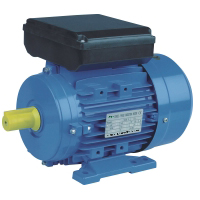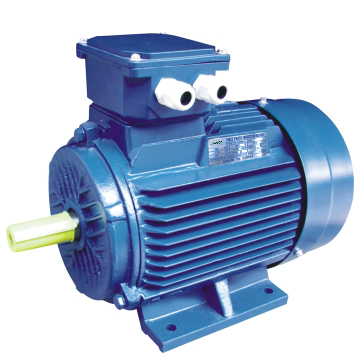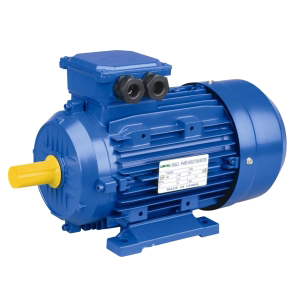All parties exert their efforts to accelerate the marketization of hydrogen fuel cell vehicles
1) YC, YCL, YL series heavy-duty 1 phase motors are totally enclosed fan cooling type. It is cast iron housing high starting torque motors.
2) JY series single phase capacitor start induction motor is suitable for any placeds where a larger starting torque and the starting current to be limited. This series motors have three frame sizes, 09, 1 and 2 of totally enclosed fan cooled type. The frame is cast iron.
4) Y & Y2 series motor is totally enclosed and fan cooled 3 phase squirrel cage induction motor. It is newly designed in conformity with the relevant rules of IEC&DIN42673 standards.
5) MS series motor which adopting the latest design and high quality meterial is conformed to the IEC Standard. The efficiency of motor meets Eff2 standard in Europe and Eff1 standard if request. The motor with removable feet is made of aluminum alloy die casting. User could mount it with various mounting type. The housing is aluminum.
Ac Motors,Electric Motor,Small Electric Motor,1 Hp Electric Motor FUJIAN TOPS POWER CO., LTD , http://www.landtopco.com
At this year's Beijing International Auto Show, Toyota, Honda, Hyundai and SAIC and other companies competing to display the latest development of hydrogen fuel cell models, has become a beautiful landscape in nearly 80 new energy show vehicles.
Experts said that related auto companies have continued to invest in hydrogen fuel cell vehicle research and development in recent years, which has led to a significant drop in vehicle costs, and performance indicators have approached the level of commercialization. As a major component of new energy vehicles, hydrogen fuel cell vehicles marketization process Speeding up.
Hydrogen fuel cell vehicles to speed up market <br> <br> Dalian Xinyuan Power Co., Ltd. Chief Engineer Houzhong Jun said that the development of hydrogen fuel cell vehicles from technological breakthroughs to advance to the current "cost reduction" phase. At present, hydrogen fuel cell production technology has matured, and the market for hydrogen fuel cell vehicles will be introduced in 2016-2020. After 2020, hydrogen fuel cell vehicles will be fully commercialized.
Compared with traditional automobiles, hydrogen fuel cell vehicles have zero or nearly zero emissions, reduce water pollution from oil leakage, reduce greenhouse gas emissions, improve fuel economy, improve engine combustion efficiency, and operate smoothly and without noise. advantage. Hydrogen fuel cell vehicles run electricity through the chemical reaction of hydrogen and oxygen in the air to drive the car, driving the car. Unlike an electric car that uses stored electricity to drive a car, a hydrogen fuel cell car runs while generating electricity. Only water is discharged during driving, and no harmful air that pollutes the air is generated. In addition, the energy density of hydrogen is 10 times that of a vehicle-mounted lithium-ion battery. Hydrogen can travel longer distances when it is charged. The energy conversion efficiency of a fuel cell is 2-3 times higher than that of an internal combustion engine.
According to experts, hydrogen fuel cell vehicles are not only clean, but also light and fast. For example, if a car has a 400 km mileage, it only needs 50 kilowatts of fuel cell stacks and about 5 kilograms of hydrogen. At the same time, hydrogen fuel cells can also solve the problem of long charging time for pure electric vehicles. For example, the hydrogen fuel cell models currently being developed by Mercedes-Benz are based on Class B F-Cell, and the power system was jointly developed by Daimler, Renault-Nissan, and Ford. Carbon fiber hydrogen tanks can be full within 3 minutes.
Hou Zhongjun said that in the past two years, the international breakthrough in hydrogen fuel cell technology has been rapid, mainly reflected in: First, life problems have been resolved, the mainstream level can be maintenance-free operation for 5000 hours, UTC, Toyota up to 10,000 hours, equivalent to the car Life-long maintenance-free. The second is that the low-temperature performance is solved, and a certain brand of hydrogen fuel cell vehicles has no problem in the Arctic test. Thirdly, breakthroughs have been made in the material system. If the amount of catalysts has been significantly reduced, the plates have evolved from the first generation of carbon plates to the second generation of ultra-thin, ultra-light stainless steel plates. Hydrogen storage device safety, hydrogenation of high pressure guns, and hydrogen purity have been resolved.
"Hydrogen fuel cell vehicles already have certain commercialization conditions, that is, the two key components of fuel cell stacks and hydrogen tanks have industrialized basis." Xu Yanhua, deputy secretary general of the China Association of Automobile Manufacturers believes. The real start of the hydrogen fuel cell vehicle market must have three conditions at the same time: the cost of vehicles is greatly reduced; market factors (such as high oil prices, etc.) or government policies provide zero-emission vehicles with obvious concessions; the hydrogen network construction is sufficient to meet the daily needs of fuel cell vehicles. The use of the demand.
Multinational car enterprise layout
In recent years, Toyota and BMW, Daimler and Ford, Nissan Renault, Honda and GM have formed alliances to accelerate the development of a new generation of hydrogen fuel cell vehicles. Xu Yanhua believes that the establishment of a hydrogen fuel cell vehicle development alliance by these multinational auto companies is nothing more than two considerations. First, technical complementarity and substantial reduction in their respective development costs, and second, the sharing of supplier resources for key components.
At the same time, Germany, the United States, Japan, and other countries are all making plans for the future of hydrogen industrialization, focusing on the development of hydrogen fuel cell vehicles and highway refueling stations. Driven by the support of various governments and industries, major global automobile companies such as BMW, General Motors, and Toyota have already made technical reserves in advance.
At this year's Beijing International Auto Show, Toyota exhibited an FCV concept car – a pure electric vehicle equipped with a hydrogen fuel cell. Toyota plans to launch a new fuel cell vehicle in Japan, the United States, and Europe in 2015 and hopes that its annual sales will exceed 10,000 by 2020.
A hydrogen fuel cell car being developed by Honda is expected to be on the market in 2015. The car is full of hydrogen and can travel about 310 miles (about 500 kilometers), which is twice the current mileage of pure electric vehicles, and Honda has set sales for it. The goal is to sell 5,000 vehicles within five years. The sales target markets are mainly in Japan, the United States, and Europe. Mercedes-Benz plans to launch a new hydrogen fuel cell vehicle in 2017; Hyundai is also building a new ix35 hydrogen fuel cell vehicle. The car is expected to be put into mass production in 2014.
The industry believes that hydrogen fuel cells are a very good modern automotive energy solution. At present, hydrogen fuel cell vehicles have begun to be deployed in countries with developed automobile industries such as Germany, the United States, and Japan.
Domestic companies should rise to catch up
Wang Binggang, head of the National 863 “Energy-saving and New Energy Vehicle†Major Project Supervision Advisory Group Leader, said that the design life of hydrogen fuel cells must reach 5000 hours to achieve the industrialization target, and the stable life of domestic related enterprise hydrogen fuel cells is still around 2000 hours. , And the international advanced technology can already reach about 8000 hours. In addition, the high cost of hydrogen fuel cell vehicles is a common problem faced by global auto companies. China is also facing a wide gap in this area.
Xu Yanhua believes that there is still a considerable gap between the development of domestic hydrogen fuel cell vehicles and Japan, the United States, and Europe. In terms of product preparation phase, China is basically at the stage of sample development, and engineering development is still in its infancy. Based on key technical indicators such as mileage, hydrogen consumption, low temperature, and longevity, at least 30% of the gap is with leading international companies. The industrialization of hydrogen fuel cell stacks and hydrogen storage tanks is basically not available, and at the national level, there are currently no plans for the construction of hydrogen refueling stations; from the perspective of the R&D of automotive companies, SAIC has about 300 R&D teams in recent years. 100 million yuan in development investment, and has formed a certain capacity for the development of electric reactors and hydrogen fuel cell systems. In addition, some companies have conducted basic technology research with a small amount of investment, but most companies have not conducted research and development of hydrogen fuel cell vehicles.
It is understood that as early as around 2000, the Ministry of Science and Technology began to support the research and development of domestic hydrogen fuel cell vehicle basic technologies, and a small number of demonstration vehicles were put into use during the Beijing Olympic Games. In 2012, Tongji University, Tsinghua University, Dalian Institute of Physical Chemistry, Chinese Academy of Sciences, SAIC, FAW, etc. initiated the establishment of China's fuel cell vehicle technology innovation strategic alliance, aiming to focus on the advantages of fuel cell vehicle R&D and production, as soon as possible to overcome the relevant core and Bottleneck technology accelerates the industrialization of fuel cell vehicles in China. In the "Energy Conservation and New Energy Vehicle Industry Development Plan (2012-2020)", it is also clearly stated that "fuel cell vehicles, automotive hydrogen energy industry and the international development."
There are indications that domestic related companies are accelerating the pace of R & D and promotion of hydrogen fuel cell vehicles.
At the end of March this year, SAIC signed a joint statement with the German Volkswagen. The two sides will carry out technical cooperation on hydrogen fuel cells and join hands with Shanghai Volkswagen to accelerate the industrialization of plug-in hybrid vehicles.
At this year's Beijing International Auto Show, SAIC Motor announced the Roewe 950 plug-in hydrogen fuel cell sedan. The car is equipped with two 700bar hydrogen cylinders, its hydrogen reserves up to 4.34 kilograms, the maximum mileage of 400 kilometers. By optimizing the vehicle start-up system, the vehicle can still start and travel normally even in a minus 20°C environment.
Xu Yanhua said that in view of the current development of domestic hydrogen fuel cell vehicles, it will be necessary to catch up and catch up before it is possible to keep pace with the international advanced level. In this regard, Xu Yanhua suggested that basic and qualified companies in China should use hydrogen fuel cell vehicles as a long-term strategy, increase investment, have a professional team, and accelerate the process of engineering development; and strengthen cooperation among enterprises, universities, and research institutions. , especially international cooperation, actively participate in the formulation of relevant international standards; relevant government departments should actively promote the industrialization of hydrogen fuel cell vehicles, including the industrialization of key assembly components such as electric stacks and hydrogen tanks, and also the There must be systematic and long-term considerations for the construction, and there should be planned and step-by-step demonstration operations in public transport areas and super large cities (such as Kita-Shiro) to actively guide the development of hydrogen fuel cell vehicles. 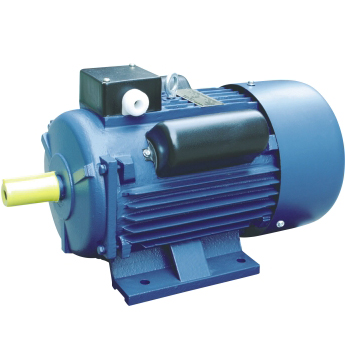
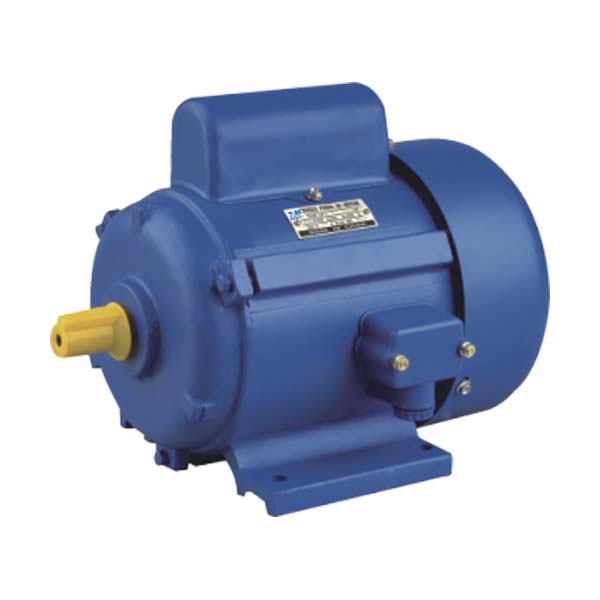
3) ML, MY, MC series single phase aluminum housing induction motor conforms to the IEC standard. The motor is with removable feet. User can fit according to their needs.
